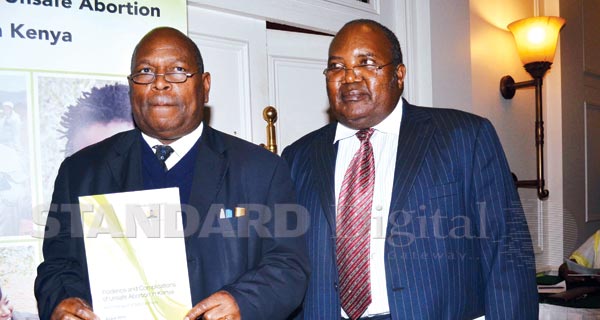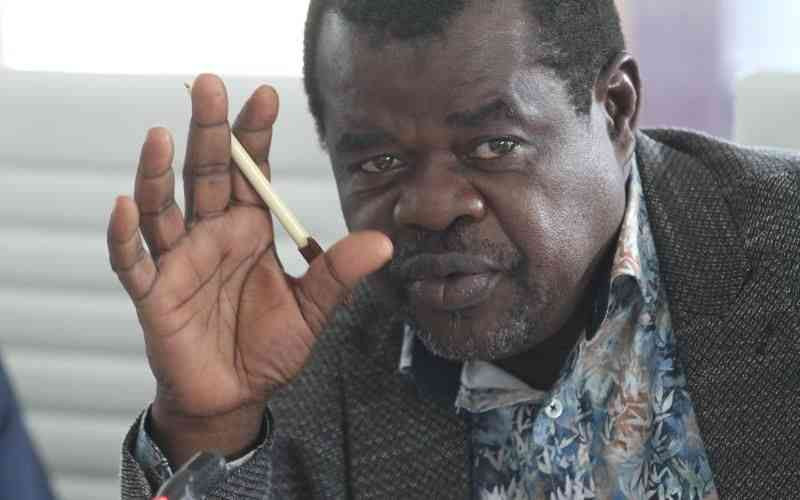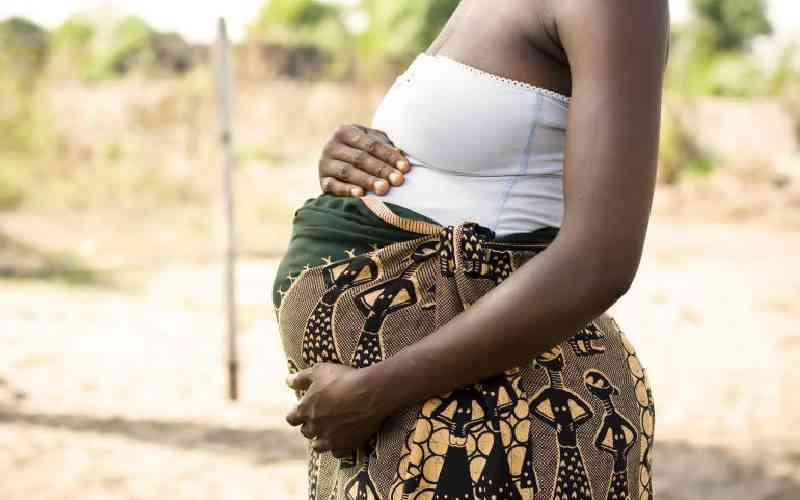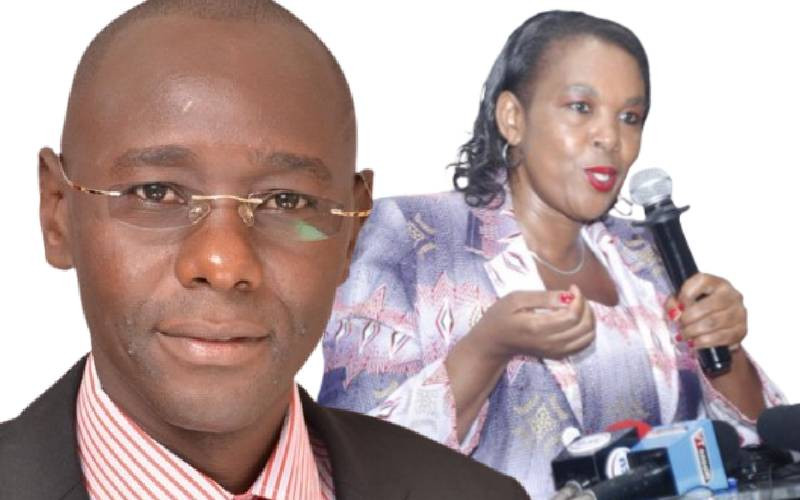 |
|
Director of Medical Services Dr Francis Kimani (left) and a member of the Medical Practitioners and Dentists Board Dr Samson Wanjala during the launch of the Abortion Report at a Nairobi hotel. [Photo: Beverlyne Musili/Standard] |
By Lonah Kibet
Nairobi, Kenya: An astonishing 465,000 unsafe abortions were procured by Kenyan women last year, according to a national survey released Wednesday.
More shocking for Kenyan families is data showing that majority of those seeking backstreet services were married women while girls as young as 10 were also captured in the survey data.
The report launched Wednesday showed that 64.4 per cent of married women or those living with their partners sought post-abortion care in health facilities while 27.8 per cent have never been married and 7.5 per cent were divorced.
It further revealed that among those seeking after-abortion care in health facilities, 16.5 per cent were girls aged between 10 and 19; 31.7 per cent were aged between 20 and 24 while the other half were over 25 years.
The report released Wednesday by the Director of Medical Services Dr Francis Kimani says last year’s count was up from less than 300,000 a decade ago.
In December a Google report confirmed that the Internet search query “How to procure an abortion” was the most popular of all searches by Kenyans.
The Google Zeitgeist 2012 report showed the number one trending search in the “how to” category was by Kenyans seeking information on how to abort.
The study carried out by the Ministry of Health, African Population and Health Research Center, Ipas, and Guttmacher Institute shows that induced abortions cut across all reproductive age groups, religions, social status and education even pulling in girls as young as 10.
“More shocking is the finding that among women aged 19 or younger who came to a health facility for post-abortion care, 45 per cent experienced severe complications,” said Kimani during the launch.
Organ failure
However the rates of abortion vary from region to region with Rift Valley at the top followed by Nyanza and Western. While nearly 120,000 women were treated for health complications resulting from unsafe abortions last year, 38,687 and 36,842 of these were from Nyanza and Western respectively.
About 40 per cent of those who sought post abortion care had primary school education, 35.5 per cent secondary education, 14.8 post-secondary education and 9.3 had no education at all.
The highest sub-group of women who sought after-abortion care was unemployed housewives at 41.7 per cent followed by farmers or unskilled persons at 24.9 per cent.
The study which sampled 2,631 cases from 350 public and private health facilities shows a worrying trend where half of those seeking post abortion care are young women below 25-years. Majority are married, have some level of education and live in rural areas where health facilities are lacking.
Stay informed. Subscribe to our newsletter
The increase in backstreet abortions is despite a new constitution ratified three years ago that legalises abortion when the mother’s health is endangered.
This constitutional provision was expected to allow women to legally seek abortion services and reduce those resorting to clandestine operations.
The data released Wednesday indicates that, globally, Kenya is second only to Uganda in the number of recorded induced abortions as well as having the highest number of women developing serious health complications.
As expected, three quarters of those seeking care at hospitals after clandestine operations had severe complications ranging from high fever, infections, and shock or organ failure.
Women who were most likely to suffer severe complications were those who were divorced, young students and those with pregnancies that were more than 12-weeks-old.
The study team now wants more efforts put in place to offer women more effective family planning methods such as long lasting reversible contraception, safe abortion and post abortion care as required by the constitution.
Speaking during the launch event, Kimani said that many women in Kenya dread the side effects of contraceptives while others cannot afford family planning services.
He said the government needed to increase allocation for contraceptives, adequate and sustainable funding for maternal health and make health providers more accountable to the public.
 The Standard Group Plc is a
multi-media organization with investments in media platforms spanning newspaper
print operations, television, radio broadcasting, digital and online services. The
Standard Group is recognized as a leading multi-media house in Kenya with a key
influence in matters of national and international interest.
The Standard Group Plc is a
multi-media organization with investments in media platforms spanning newspaper
print operations, television, radio broadcasting, digital and online services. The
Standard Group is recognized as a leading multi-media house in Kenya with a key
influence in matters of national and international interest.
 The Standard Group Plc is a
multi-media organization with investments in media platforms spanning newspaper
print operations, television, radio broadcasting, digital and online services. The
Standard Group is recognized as a leading multi-media house in Kenya with a key
influence in matters of national and international interest.
The Standard Group Plc is a
multi-media organization with investments in media platforms spanning newspaper
print operations, television, radio broadcasting, digital and online services. The
Standard Group is recognized as a leading multi-media house in Kenya with a key
influence in matters of national and international interest.







